
+91 8095511877

+91 8095511877
Valve replacement surgery corrects the problems due to diseased heart valves.
Your heart has two upper chambers or atrium and two lower chambers or ventricles. There are four valves in your heart.
These are
Mitral Valve between the left atrium and left ventricle
Aortic Valve between the left ventricle and aorta
Tricuspid valve between the right atrium and right ventricle
Pulmonary valve between the right ventricle and pulmonary artery.
The most common problem affecting heart valves are stenosis or narrowing of the valve. In some, the valves fail to close properly, resulting in the valves' backflow or regurgitation.
If you have a heart valve problem, your surgeon will try to repair it. In some situations, repair surgery is not possible. You will then need a heart valve replacement surgery.
During a valve replacement surgery, your surgeon will place an artificial valve in the place of the diseased valve. Either you will have a mechanical valve made of metal or a biological valve made from animal tissue.
Valve replacement is a very successful surgery with a very high rate of success. Those having the surgery will be able to lead a healthy life without any problems.
Among the four heart valves, the aortic and mitral valve replacement is more common than others.
Aortic Valve Replacement: The aortic valve separates the left ventricle and the aorta. The left ventricle is the heart's main pumping chamber. The aorta is the main artery that supplies oxygen-enriched blood to the body. If the aortic valve does not work correctly, then it can cause various symptoms. They include breathing problems, fatigue, chest pain, arrhythmias, and sudden cardiac arrest.
Mitral Valve Replacement: The mitral valve divides the left atrium and the left ventricle in the heart. The left atrium receives oxygenated blood from the lungs. Once the left atrium contracts, the blood flows from the atrium to the left ventricle through the open mitral valve. When the left ventricle fills up, the mitral valve shuts down. It stops the blood from flowing back into the atrium while the ventricle contracts.
Mitral valve disease will have symptoms like fatigue, swelling of legs and ankles, heart murmur, shortness of breath, palpitations, arrhythmia.
Pulmonary valve replacement surgery
The most common disorder affecting the pulmonary valve is stenosis or narrowing. It causes a decrease in the blood flow to the lungs as well as from the lungs. In pulmonary regurgitation, there is a flow of blood back into the right ventricle. It is due to the inability of the valve to close properly.
Tricuspid valve replacement surgery
In tricuspid stenosis, there is a narrowing of the valve. It leads to a decrease in the flow of the blood to the right ventricle. In tricuspid regurgitation, the blood flows back as the valve fails to close correctly.
During a valve replacement surgery, you will have general anesthesia to put you to sleep.
Once you are asleep, your surgeon will make an incision across your chest. The next step is to divide the midline breastbone surgically to expose the heart.
The surgeon will then shift your blood circulation to the heart-lung machine during the surgery. It enables the surgeon to operate on a still heart.
The surgeon will then remove the diseased heart valve. The next step is to attach the artificial valve in its place with the help of sutures.
Your surgeon will then shift the circulation from the heart-lung machine back to your heart. He or she will then check how the artificial valve performs while the heart is functioning. Once everything is ok, the surgeon will go on to close the chest cavity. The incisions in your chest will have sutures or staples.
After the surgery, the staff will move you into the observation room near the operation theatre. Here you will slowly wake up from the effects of anesthesia.
In this surgery, you will have only two or three small incisions in your chest. The surgeon will insert a camera through one of the holes without dividing any bone on the chest. It will then beam images of the heart to a monitor.
You will recover faster as the incisions are small. The chances of complications like bleeding and wound infections are also less.
You will be in the ICU for a day or two.
In the ICU, you will find that there is a bandage over the middle of the chest. There will be wires that connect your body to various machines. These help the nurses to assess the functioning of your body carefully and regularly.
You will be given liquid food on the first day. Your appetite will also be less, as you will be feeling exhausted.
You will go back to your hospital room the next day.
In the room, you will be able to sit up by the second day. The appetite will show signs of improvement. But it is better to stick to a soft and easily digestible diet.
It will be advisable to walk around a few steps in the room. It will improve your blood circulation. The benefits are faster wound healing and recovery. It also helps prevent blood clots from forming in your legs.
You will have medicines to prevent the rejection of the artificial valve as well as blood thinners.
You will go back home after three or four days.
At home
It is natural for you will feel exhausted in the first few days of surgery. You will also find it difficult to sleep, which is normal.
You will have to take care of the incision wound very well to prevent any infections. Keeping the wound dry is essential.
You will have to do mild physical activities a week after surgery. But over-exertion is not good. Avoid climbing stairs too many times.
Driving: It will take about five to six weeks for you to start driving
Household chores: You can start doing light household chores after a couple of weeks. It is better to have help for heavy tasks.
Going back to work: If your job is not strenuous, you can go back after four to five weeks.
Some of the risks are


This article has been reviewed for medical correctness and relevance by
Dr Manish Hinduja
Dr Manish Hinduja is Consultant Cardiothoracic and Vascular Surgeon at Fortis Hospitals, Mulund and Vashi, Mumbai. He has special interests in minimally invasive cardiac surgery and heart transplant surgery. His skills include total arterial coronary artery bypass surgery, valve repair surgery, valve-sparing aortic root surgeries. He is highly skilled in minimally invasive CABG and minimally invasive valve surgeries. He has various publications in important international journals. He has remained a gold medalist during his training has won the prestigious C S Sadasivam Award" from the national board. "
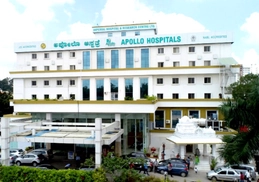
Apollo Bangalore
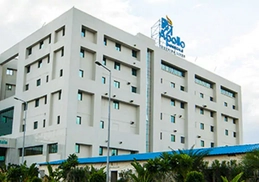
Apollo Chennai
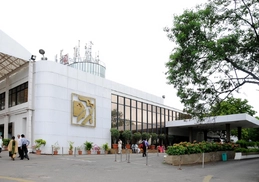
Apollo Health City
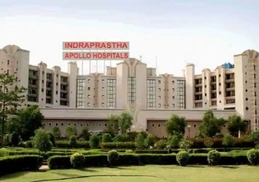
Apollo Indraprastha

Apollo Mumbai
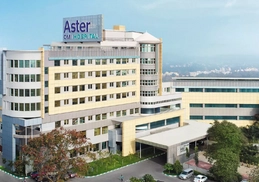
Aster CMI
Frequently Asked Questions
Is valve replacement surgery safe?
Will I have any restrictions on my life after valve replacement surgery?
How long will an artificial heart valve last?
Is valve replacement surgery a major surgery?
What is the cost of valve replacement surgery in India?